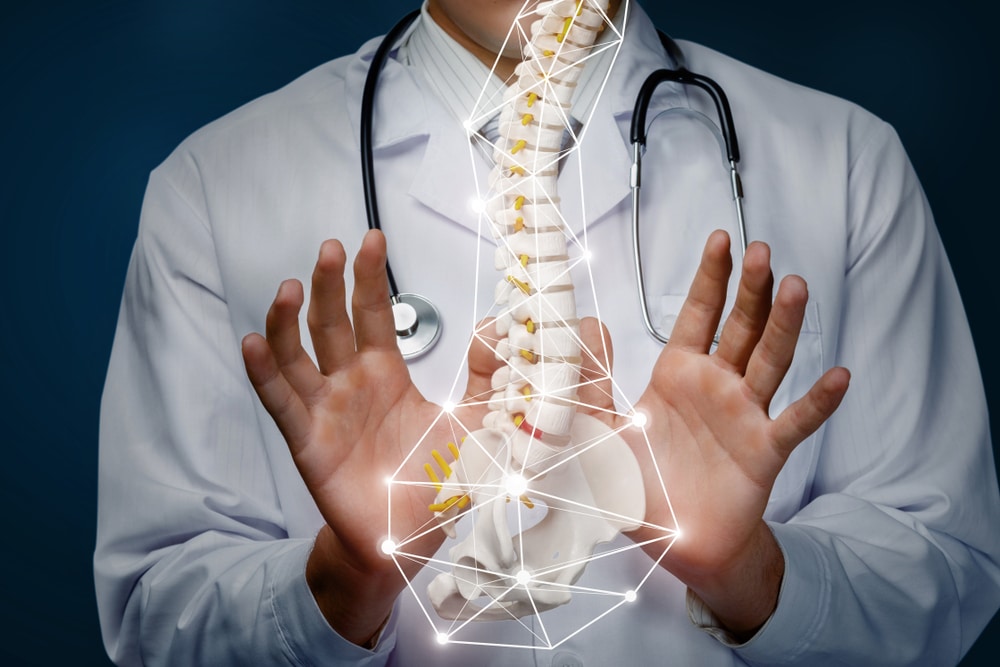Even with the influx of innovative car technology, drivers continue to make mistakes on the roads that cause accidents. In 2019, New Jersey played host to 276,861 crashes. New York roads across the state saw 447,021 accidents. After a collision, you may have injuries that require you to seek treatment. Orthopedic doctors may provide initial care and consult in the emergency room, but you may need to continue with another type of provider after discharge.
Your injuries will dictate how you feel and whether or not you need other kinds of medical care. Any damage to the central nervous system may benefit from a consultation with a neurologist.
How do you know what kind of doctor you should seek out in the wake of an accident to help eliminate pain, prevent further damage, and recover from your injuries? Discover some of the similarities and differences between orthopedic practitioners and neurologists and the common injuries you may face after the crash.
What Do Orthopedic Doctors Do?
In terms of the medical community, orthopedic practitioners are some of the most in-demand, whether for accident recovery, sports medicine, or other specialties. These providers focus on all facets of the body’s musculoskeletal system, including the joints and ligaments that connect bones as well as the muscle groups involved with the movement. Since there are 206 bones with 360 joints connecting them, orthopedic practitioners have a steady stream of patients at a given time due to accidents, sports injuries, or existing conditions.
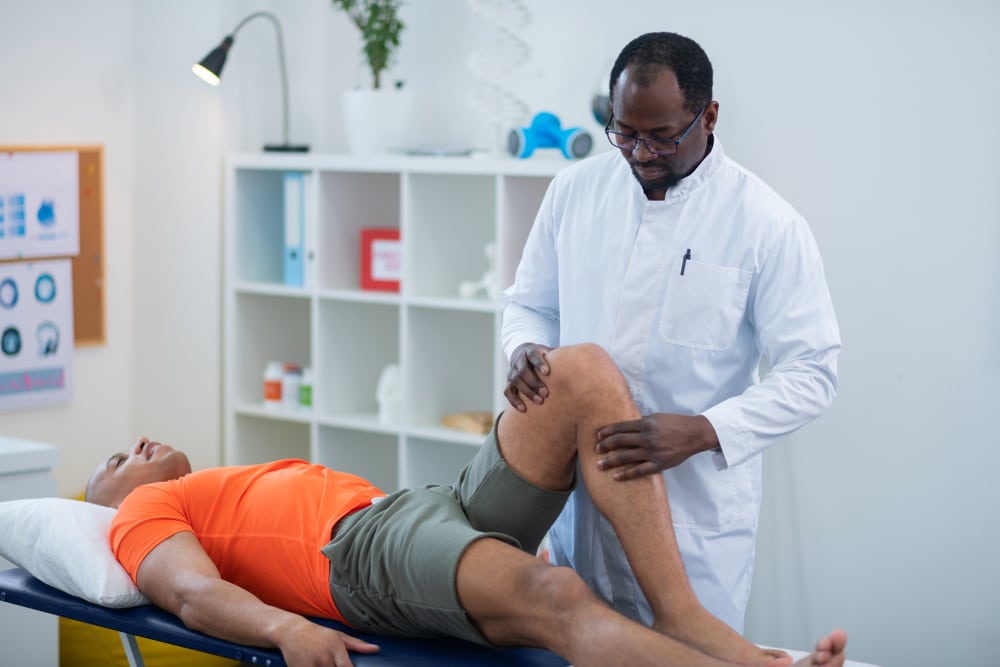
Some of the most common orthopedic conditions treated by these providers include:
- Bursitis – inflammation of the fluid-filled sacs around the joints that causes pain and discomfort
- Arthritis – swelling of joints that cause immobility, pain, and reduced function
- Fractures – a disconnect or break in a bone that requires immobilization
- Back pain – either localized to the muscles or spinal column
- Neck pain – caused by joint, muscle, or skeletal conditions
- Knee pain in the ligaments, joints, or patella (knee cap)
An orthopedic specialist’s versatility may prove invaluable when caring for patients with accident injuries. With such an extensive body system to oversee, these healthcare providers are well-versed in handling every facet of a traumatic injury the body may sustain during a crash.
Not all providers perform orthopedic surgery, and some only do specific body areas. You may want to consider this when looking for a comprehensive orthopedic doctor, especially if you have multiple injuries.
What Does a Neurologist Do?
A neurologist’s focus is on the central nervous system of the body. This includes the brain, which acts as the motherboard or master computer for every other body system and function. When the brain is in distress, nerve impulses become interrupted, and corresponding organs and movements do not work. The spinal cord is the pathway through which the brain sends impulses, so if there are issues with movement and function, a neurologist may suspect an issue with the spinal cord.

Examples of medical disorders that may require diagnosis and treatment by a no-fault neurologist include:
- Parkinson’s Disease – a condition where the brain degenerates and causes a loss of muscle control
- Alzheimer’s Disease – a progressive wearing away of the memory centers of the brain
- Stroke – an event that causes an interruption of blood flow in a part of the brain, leading to oxygen deprivation
- Seizure – produces fits of twitching, limpness, or rigidity throughout the muscles caused by too much electrical activity in the brain
- Multiple Sclerosis – a disease that affects the spinal cord, brain and eyes, eventually causing loss of functions in the body
Neurologists may examine you after a crash using the most advanced techniques to ensure that you did not suffer any damage to the brain or spine. However, even if you find yourself released from that initial consult, you may find that your injuries require a neurologist’s continued treatment and care.
If your neurological injury requires surgery, you may need to seek the attention of one who performs a specific procedure. While neurologists can treat every facet of damage to the brain and spinal cord, not all of them do surgery, but they can discuss your treatment options. Even then, some concentrate on the brain while others may focus on the spinal column.
Why Does the Type of Crash Matter?
Car accidents range in severity based on a variety of factors. The type of crash may play a role in determining the likelihood of injuries that require medical attention. Rear-end collisions are the most common, followed by angle impacts. The more common angle accidents happen to the side of the vehicles, usually at or near the doors.
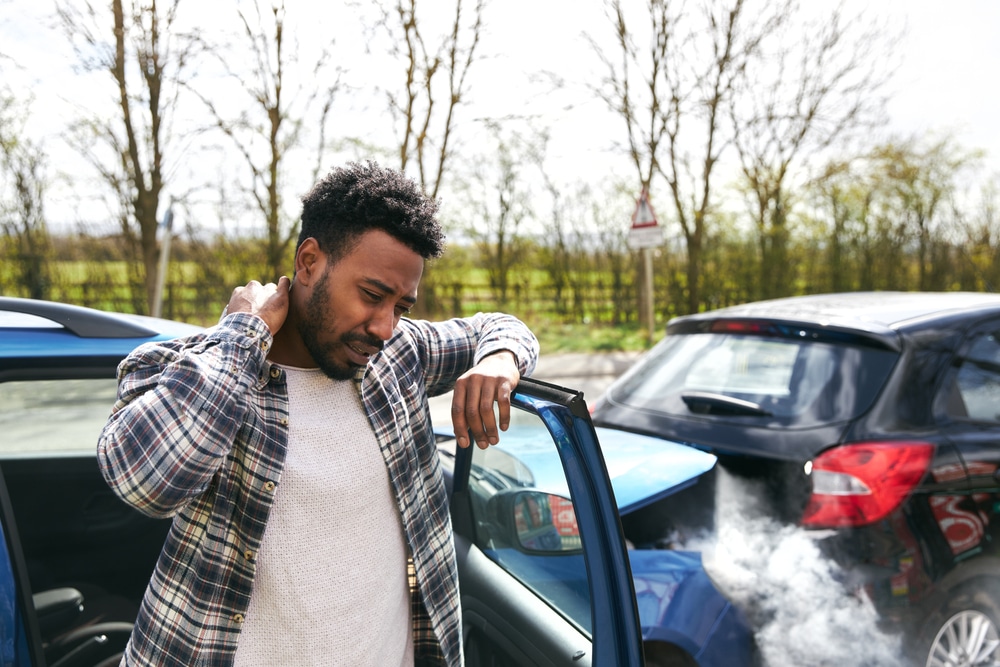
The impact area, speed of both vehicles, and other factors all contribute to the type of damage your body receives during a crash. These factors all work together to exert forces on the body through the vehicle. In an accident, three simultaneous collisions occur.
- The impact of the vehicles, which results in forces traveling through the vehicle and into those inside.
- The force of the impact on the body causes it to move in a similar fashion to the vehicles.
- The movement of the internal body systems as the force pushes through.
The way these all work determines the type of damage to your body.
What Are Common Accident Injuries?
While crashes are unpredictable, some injuries occur more frequently than others. Even so, the extent and severity of the damage may hinge on other factors, such as your overall health at the time of the crash. However, orthopedic doctors may encounter certain injuries more frequently than others after a motor vehicle accident in NY or NJ.
Whiplash
Your neck consists of a network of solid muscles meant to support the head and cervical column of the spine. It does not take much force to cause tiny microtears in these muscles. Whiplash is the diagnosis given when the neck jolts back and forth or side to side due to a crash. It presents with pain, stiffness and reduced mobility. Whiplash is not always recognizable in medical studies, such as magnetic resonance imaging (MRI). Doctors typically reach a diagnosis based on symptoms and the mechanics of a crash.

Bruises
Even low-impact collisions may force your skin to strike various points in the vehicle. Bruises are common and often tell the story of how your body moved in the car. They may also serve to mark spots that may require further medical study to ensure that only the skin’s surface sustained damage and not something deeper.
While some of your bruises are normal and expected, others are not. If any area of your body continues to bruise or the darkness spreads further out, it may indicate internal bleeding of an organ or major artery. Either of these may result in permanent and serious damage if left untreated.
Bone Fractures
The bones in the extremities are the most susceptible to breaking in a car accident. Orthopedic doctors deal with forearm and leg fractures immediately after a crash and beyond. The more pressure you exert on the vehicle, and it exerts back, the more likely those points of contact are to crack and break. Since the feet and hands remain in direct contact with the car during a collision, the force travels directly through them. Bone fractures may necessitate surgical repair with temporary pins or permanent hardware.
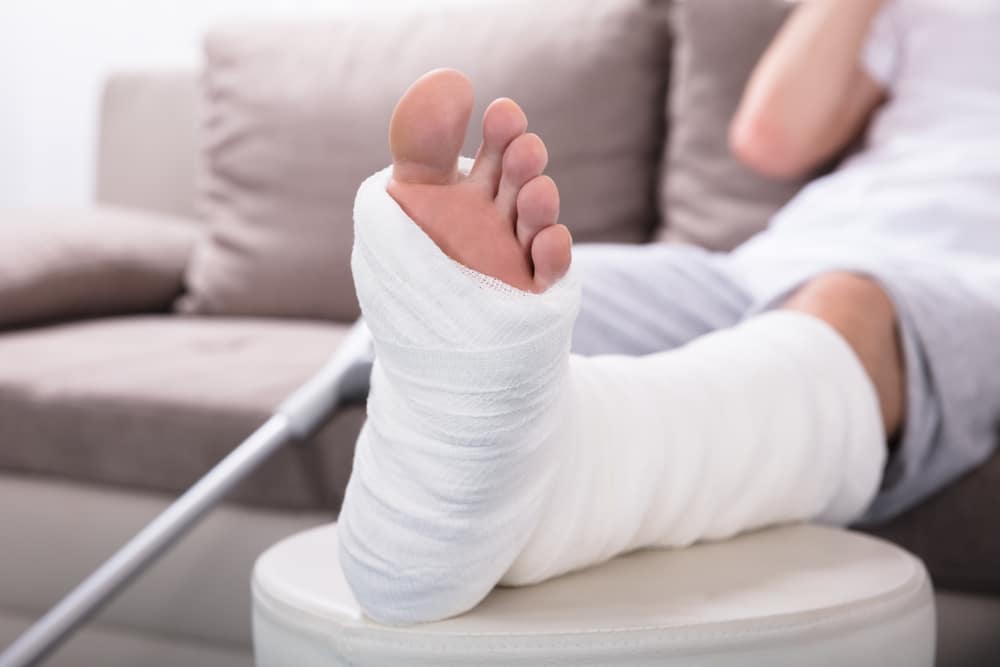
Some bone fractures are severe and may cause life-long damage. This typically happens when a bone breaks and penetrates the muscle and skin. The exposure of a bone to the environment leaves doctors with several issues. So, what do orthopedic doctors do in this situation?
First, a surgeon may set the bone in a fashion that allows regrowth, typically using rods and pins. Second, and perhaps more importantly in the immediate aftermath of a crash, the doctor needs to ensure that the risk of infection is minimal. Since the wound was open to a time, it allowed bacteria and debris to enter and perhaps infect the wound. An open compound fracture anywhere in the body necessitates a longer recovery time than one that did not open a wound to the internal body system.
Psychological Trauma
The events of an accident may not only leave a lasting impression on your body but also on your mind. The trauma of a crash may replay in your head in the days, months and even years following the event. Post-traumatic stress disorder (PTSD) affects victims of car crashes more than you may expect. Indicators of PTSD after a crash include:
- Hypervigilance about others driving
- Insomnia
- Night-terrors
- Emotional outbursts and mood swings
- Depression and anxiety disorders
It helps to speak about your symptoms with a psychologist or therapist. You may benefit from medication and talk therapy to reassure your mind that a car can feel safe again.
While the above injuries may result in pain and trauma to areas of the body, some damage may permanently alter your life.
What Is a Catastrophic Injury?
The body is strong and meant to sustain life. However, when you become involved in a serious accident, the damage to your body may require long-term care and even result in early death. Catastrophic injuries are severe and life-threatening.
Spinal Cord Damage
The back consists of the largest muscle group in your body. These muscles are responsible for supporting the spinal column, which not only perpetuates movement in the body but encases and protects the spinal cord within it. The spinal cord is a complex system of nerve fibers that transmit impulses to and from the brain. When it faces disruption at any point, the electric messages stop. It results in the loss of movement and function from that point of the cord down.
The spinal cord may become impressed upon by the bone of a vertebra or the pressure of a bulging disc. In some crashes, the impact of the vehicle or something inside of the vehicle may crush into the body and cause immediate and irreversible damage to the cord. What does a neurologist do if you present with a spinal cord injury? Surgeries and expensive rehabilitation may become part of the treatment for non-fatal injuries of this nature.
Brain Injury
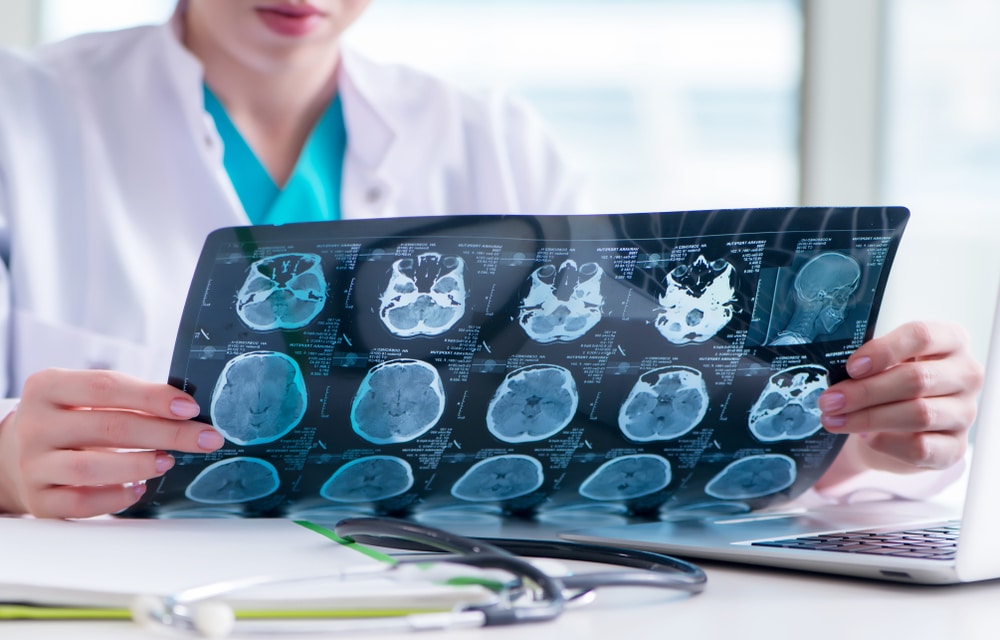
A concussion is the most common brain injury an orthopedic doctor sees after a crash. When the brain hits the skull, it may cause damage to neurons and tissue. The extent of damage may depend on the force with which the brain strikes and whether the brain bleeds. A traumatic brain injury (TBI) happens when the brain’s tissue receives damage that results in a disruption in function. You may find yourself dealing with symptoms, including:
- Severe head pain
- Nausea with or without vomiting
- Loss of concentration
- Poor memory recall
- Dizziness or vertigo
- Insomnia or extreme fatigue
One of the most frequent mistakes people make after a car accident is foregoing treatment believing their bodies are fine. However, certain internal damage may not produce noticeable signs and symptoms. Internal injuries may manifest in various ways, but they require immediate medical intervention when they do. Therefore, it is better to undergo a comprehensive medical exam after a crash.
Where To Discover Options for Treatment?
Your injuries may call for coordinated care between many providers, including neurologists and orthopedic doctors, among others. After receiving an initial diagnosis and stabilizing treatment, you may need to seek long-term help. Orthopedic providers and neurologists often work together when your injuries span multiple body systems. While these two healthcare professions work hand in hand, finding them in the same area or clinic may prove a lifesaver for post-accident treatment regimes.

Along with these two medical providers, your care likely requires other healthcare professionals to remain involved. When it comes to recovery from musculoskeletal and nervous system damage, the more comprehensive the care, the better your chances of returning to a vibrant and productive lifestyle.
Additional practitioners that may aid in your recovery in addition to orthopedic providers and neurologists include:
- Physical therapists
- Pain management doctors
- Psychologists
- Radiologists
- Podiatrists
- Surgeons (including additional orthopedic surgeons and neurosurgeons)
Fortunately, there are ways you can find these providers throughout the area to minimize hassle and maximize recovery time.
Contact Us Today
After a car accident of any magnitude, your health should remain your top concern. Instead of just wondering how orthopedic doctors and neurologists can help you after a crash, seek treatment. Let medical providers decide an appropriate course of treatment. Our staff is standing by to provide you with a comprehensive list of providers from which you can choose a medical team that matches your needs.
Whether you need orthopedic doctors, neurologists or both, No-Fault-Doctors.com can provide you with options in Manhattan, Bronx, Brooklyn, Queens, Staten Island or other New York, NY areas. Call us today and get the ball rolling on improving your health after a crash. Doctors accept no-fault insurance, medical liens, PIP (Personal Injury Protection) workers’ compensation, and other insurance plans Same-day appointments may be available.
